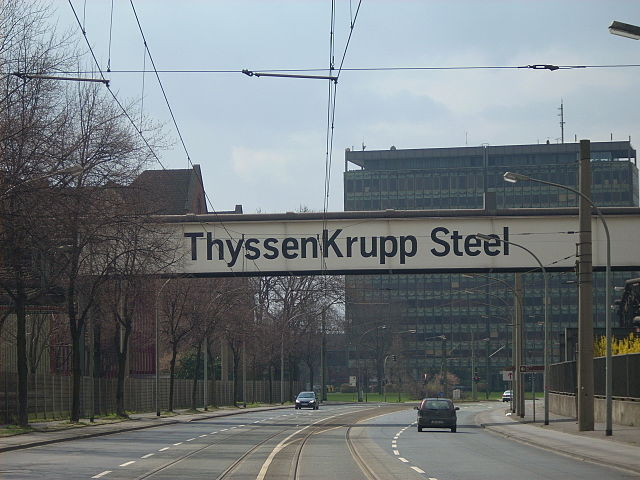Thyssenkrupp Steel Europe, Germany's largest steel producer, announced plans on Monday to cut 11,000 jobs by 2030, roughly 40% of its workforce, as part of a sweeping restructuring effort aimed at improving competitiveness. The job cuts will reduce the company's workforce from 27,000 to 16,000 over the next six years, reflecting the immense challenges faced by Germany's industrial sector in the wake of global competition, high energy costs, and weakening demand.
The company said it would cut 5,000 jobs through production and administrative adjustments, with an additional 6,000 positions to be outsourced or shed through the sale of business units. Thyssenkrupp is also planning to reduce its production capacity from 11.5 million metric tons to between 8.7 and 9 million tons. In a statement, the company cited rising imports from Asia and global overcapacity as primary factors driving the decision. "Increasingly, (global) overcapacity and the resulting rise in cheap imports, particularly from Asia, are placing a considerable strain on competitiveness," Thyssenkrupp said. "Urgent measures are required to improve Thyssenkrupp Steel's own productivity and operational efficiency and to achieve a competitive cost level."
Dennis Grimm, head of Thyssenkrupp Steel, defended the decision as a necessary step to secure the company's future. "Comprehensive optimization and streamlining of our production network and processes is necessary to make us fit for the future," he said. "We are aware that this path will demand a great deal from many people, especially because we will have to cut a large number of jobs over the coming years in order to become more competitive."
The restructuring announcement has sparked backlash from labor unions. IG Metall, which represents a significant portion of Thyssenkrupp's workforce, called the plan "a catastrophe" for employees and vowed to oppose the job cuts. While the company stated it aims to avoid layoffs by relying on voluntary departures, the scale of the reductions has raised alarm among workers and their representatives.
Thyssenkrupp's announcement comes as other German industrial giants, including Volkswagen, face similar challenges. Volkswagen recently disclosed plans to reduce employee pay by 10%, close three factories, and lay off tens of thousands of workers. The automaker cited rising energy costs and declining global demand as critical issues threatening its operations. These moves highlight the worsening conditions in Germany's broader industrial sector, which has long been a cornerstone of the country's economy.
A study commissioned by the Federation of German Industries found that up to 20% of Germany's industrial output could vanish by 2030 due to high energy costs, shrinking global markets, and growing geopolitical tensions. The report emphasized that "locational weaknesses," such as outdated infrastructure and excessive bureaucracy, are eroding Germany's competitive edge. The study estimated that a transformation effort requiring €1.4 trillion ($1.5 trillion) in investments across infrastructure, green technologies, and research and development is necessary to stabilize the economy.
Thyssenkrupp's parent company plans to spin off its steel division into an independent entity as part of the restructuring, a move that has drawn criticism from labor leaders. The plan could pave the way for Czech energy company EPCG, which currently holds a 20% stake in Thyssenkrupp Steel, to increase its share to 50%. The company's financial woes have been mounting, with a reported loss of €1.5 billion ($1.6 billion) for the 2023-24 fiscal year, following a €2 billion loss the previous year.
Germany's economic outlook remains grim. The European Commission has forecast another year of contraction for the country's economy, marking the second consecutive year of decline. High energy costs, exacerbated by Russia's invasion of Ukraine, and increasing competition from Chinese manufacturers are further pressuring German industry.




